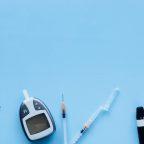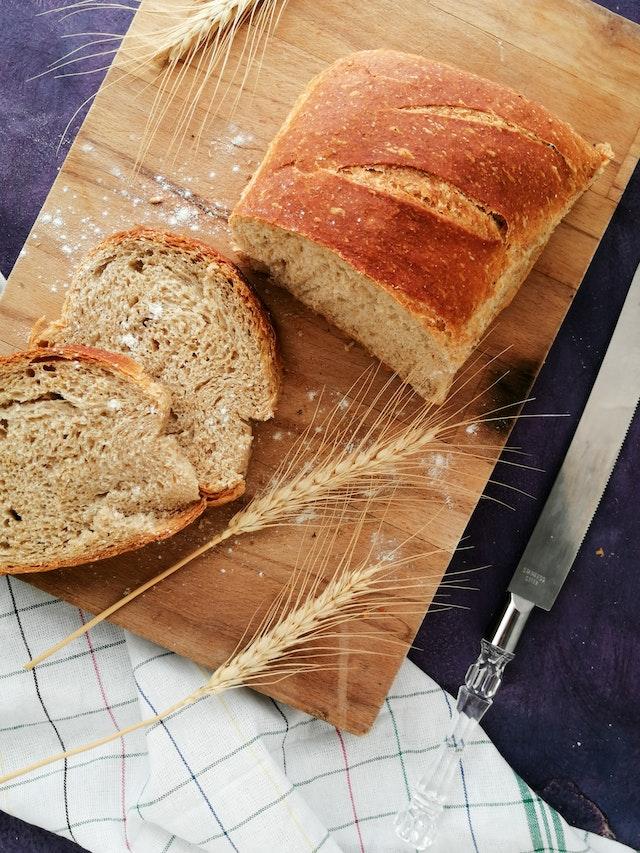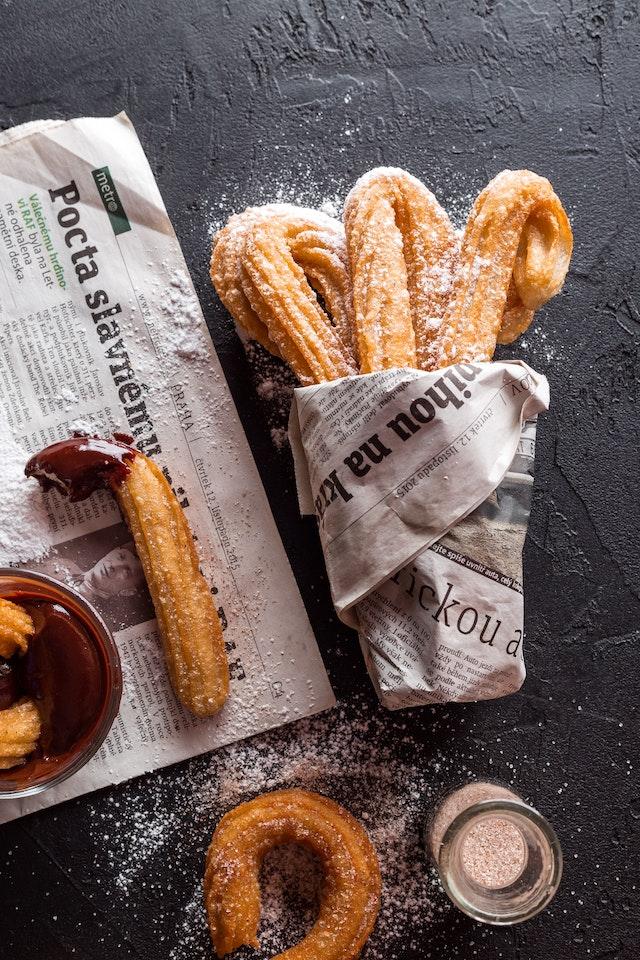Posts Tagged ‘how many grams of sugar spikes insulin’

How Many Grams of Sugar Spikes Insulin?
Blood sugar spikes happen when your blood sugar increases after eating and suddenly drops.
They may result in short-term hunger and drowsiness. Type 2 diabetes can develop over time if your body is unable to adequately control blood sugar levels.
Your blood sugar will increase by roughly 5 mg/di after ingesting 1 gram of pure glucose, while this amount may change according to the person’s weight, diabetes condition, and present blood sugar level.
A growing number of people are developing diabetes. In actuality, 25% of the 29 million Americans who have diabetes are completely unaware of their condition.
Your blood arteries may stiffen and narrow as a result of blood sugar surges, which increases your risk of having a heart attack or stroke.
Go low-carb
Blood sugar levels are raised by carbohydrate-containing foods.
Carbs are converted into simple sugars when you ingest them. Following that, these sugars get into circulation.
When your blood sugar levels increase, your pancreas secretes the hormone insulin, which instructs your cells to take up sugar from the blood. You have a dip in blood sugar as a result of this.
A low-carb diet has been linked to lower blood sugar levels, according to numerous research.
Besides helping with weight loss, which can lower blood sugar surges, low-carb diets also have this additional advantage. You can cut back on your carbohydrate intake in a variety of ways, including by keeping track of them.
Eat fewer refined carbs
Sugars or refined grains are examples of refined carbohydrates, also referred to as processed carbohydrates.
Table sugar, white bread, white rice, soda, candy, breakfast cereals, and desserts are a few prominent sources of refined carbohydrates.
Nearly all of the nutrients, vitamins, minerals, and fiber have been removed from refined carbohydrates.
Because they are metabolized by the body so easily and fast, refined carbohydrates are considered to have a high glycemic index. Blood sugar levels increase as a result of this.
High-glycemic-index foods may cause a surge in blood sugar followed by a subsequent dip in blood sugar, which can increase appetite, cause overeating, and result in weight gain.
Different carbohydrates have different glycemic indexes. It depends on a lot of factors, including ripeness, what else you eat, and how the carbohydrates are prepared or cooked.
The majority of fruits, non-starchy vegetables, and legumes, as well as whole-grain foods, have a lower glycemic index than other foods.
Reduce your sugar intake
The daily added sugar intake for an American is 22 teaspoons or 88 grams. Around 350 calories are contained in that.
While some of it is added as table sugar, the majority of it originates from prepared and processed foods like candy, cookies, and sodas.
Sugars like sucrose and high-fructose corn syrup that have been added to foods are not necessary for your nutrition. As a result, they are only worthless calories.
These simple sugars are very quickly broken down by our body, which leads to a very immediate rise in blood sugar. Replace sugar with sugar replacements as a compromise rather than completely giving it up.
Keep a healthy weight
Currently, it is estimated that two out of every three persons in the US are overweight or obese.
Obesity can make it more challenging for your body to use insulin and regulate blood sugar levels. This may result in blood sugar increases and an increased risk of type 2 diabetes.
There is a ton of evidence that connects obesity to insulin resistance and the onset of type 2 diabetes, while the exact mechanisms by which it occurs are still unclear.
On the other side, it has been demonstrated that losing weight enhances blood sugar regulation.
Exercise more
By enhancing your cells’ sensitivity to the hormone insulin, exercise helps prevent blood sugar increases.
Blood sugar levels are lowered by exercise because it causes muscle cells to absorb sugar from the circulation.
Exercise of any intensity has been shown to lessen blood sugar rise, including vigorous exercise.
Blood sugar regulation may differ depending on whether you exercise on an empty or full stomach.
As a double whammy to counteract blood sugar rises, increasing activity also offers the added benefit of aiding in weight loss.
Eat more fiber
The components of plant foods that your body cannot digest makeup fiber. Soluble fiber and insoluble fiber are the two main categories. Particularly soluble fiber can aid in reducing blood sugar peaks.
It disintegrates in water to create a gel-like material that aids in reducing the rate at which carbohydrates are absorbed in the gut. Instead of a spike, this causes the blood sugar to rise and fall gradually.
Additionally, fiber can help you feel full, which can help you eat less and have less of an appetite. Good sources of soluble fiber include:
• Nuts
• Legumes
• Some fruits, such as strawberries, raspberries, and blueberries
• Many vegetables
Drink more water
Lack of water intake might cause blood sugar to increase.
Your body creates the hormone vasopressin when you are dehydrated. As a result, your kidneys are encouraged to retain fluid, and the body is prevented from excreting extra sugar in your urine.
More sugar is also released into the blood by your liver as a result of it.
It is debatable how much water is ideal to consume. Basically, it depends on the person.
You should always drink as soon as you feel thirsty, and you should drink more water in hot weather and while exercising.
Drink water instead of sugary drinks or sodas because they will cause blood sugar to increase.
Introduce some vinegar into your diet
Many health advantages have been discovered for vinegar, especially apple cider vinegar.
Weight loss, lowered cholesterol, antimicrobial effects, and blood sugar regulation have all been related to it.
The glycemic index of a food can be lowered by adding vinegar, which can aid in preventing blood sugar increases. Pickled meals considerably lower the meal’s glycemic index, according to a Japanese study, which found this to be true.
Get enough chromium and magnesium
Chromium and magnesium have both been shown in studies to be useful in reducing blood sugar peaks.
• Chromium
You require trace levels of the mineral chromium.
It is believed to improve the way that insulin works. Encouraging the cells to take up sugar from the blood may help prevent blood sugar increases.
Here are the suggested dietary allowances for chromium. Broccoli, egg yolks, shrimp, tomatoes, and Brazil nuts are examples of nutrient-dense foods.
• Magnesium
The element magnesium has also been connected to the regulation of blood sugar.
On this page, you can find the suggested daily intakes for magnesium. Almonds, avocados, cashews, peanuts, and spinach are all rich food sources.
Add some spice to your life
For countless years, alternative medicine practitioners have utilized fenugreek and cinnamon. The management of blood sugar has been connected to both of them.
• Cinnamon
There is conflicting scientific data supporting the use of cinnamon in blood sugar management.
Cinnamon has been demonstrated to improve insulin sensitivity and lessen blood sugar increases after a carb-based diet in healthy individuals.
There are two types of cinnamon:
- Cassia: Can be produced by a number of different Cinnamomum tree species. This is the variety that is most frequently found in supermarkets.
- Ceylon: Obtained exclusively from a tree called Cinnamomum Verum. Although it costs more, it might have more antioxidants.
Coumarin, a compound found in cassia cinnamon, has the potential to be dangerous.
The acceptable daily intake of coumarin has been defined by the European Food Safety Authority (EFSA) at 0.045 mg per pound of body weight (0.1 mg/kg). For a 165-pound (75 kg) person, this is equivalent to around half a teaspoon (1 gram) of Cassia cinnamon.
• Fenugreek
The seeds of fenugreek are rich in soluble fiber, which is one of its qualities.
As a result, the digestion and absorption of carbohydrates are slowed, assisting in preventing blood sugar increases. However, it seems that more than simply the seeds may help to lower blood sugar levels.
Blood sugar peaks may be lessened with fenugreek. Although it can be added to food, some individuals choose to take it as a supplement because of its strong flavor.
• Berberine
There are numerous plants from which the chemical berberine can be derived.
For thousands of years, it has been utilized in traditional Chinese medicine. Its applications include lowering cholesterol, promoting weight loss, and managing blood sugar.
Berberine improves insulin sensitivity by decreasing the amount of sugar the liver produces. Even some type 2 diabetes medications have been proven to be as ineffective as it is.
Despite the fact that berberine seems to be rather safe, if you have any health issues or are currently on any medications, talk to your doctor before using it.
Consider these lifestyle factors
You should also take into account these lifestyle factors that can alter blood sugar if you truly want to lessen your blood sugar spikes.
• Stress
Stress can have a detrimental impact on your health in a number of ways, including by creating headaches, elevated blood pressure, and anxiety.
Additionally, it has been demonstrated to have an impact on blood sugar. Your body releases specific hormones as your stress level rises. The result is a release of sugar-based stored energy for the fight-or-flight response into your bloodstream.
Your blood sugar has been shown to benefit from actively treating stress. Yoga poses have been shown in a study of nursing students to lower stress levels, and blood sugar rises after meals.
• Sleep
Poor blood sugar regulation has been linked to both insufficient and excessive sleep. Your blood sugar levels might be impacted by even one or two bad nights.
Both amount and quality matter when it comes to sleeping. In terms of managing blood sugar, a study indicated that the deepest stage of sleep (NREM) was crucial.
• Alcohol
A lot of added sugar is frequently found in alcoholic beverages. This is especially true for cocktails and mixed drinks, which can have up to 30 grams of sugar per serving.
Similar to how adding sugar in meals causes blood sugar rises, so does the sugar in alcoholic beverages. The majority of alcoholic beverages are likewise very, very low in nutrients. They are, in fact, empty calories, similar to added sugar.
The effectiveness of insulin can also be lowered over time by heavy drinking, which results in high blood sugar and eventually leads to type 2 diabetes.
The bottom line
You may prevent blood sugar rises by making simple dietary changes like following a low-carb, high-fiber diet and staying away from added sugars and processed grains.
Beyond just assisting in blood sugar regulation, frequent exercise, maintaining a healthy weight, and drinking lots of water can all be beneficial to your health.
However, before making any dietary changes, talk to your doctor if you have any medical issues or are taking any medications.
For the majority of people, adopting these straightforward dietary and lifestyle modifications is a fantastic strategy to reduce your chance of developing type 2 diabetes or insulin resistance.
FAQ
How much sugar can cause insulin spikes?
When your blood sugar levels rise above 250 mg/dl, you often start to experience the symptoms of hyperglycemia. The longer it goes untreated, the worse the symptoms may get. Frequent urine is one sign of a blood sugar increase.
How much does it take to spike insulin?
Thirty-five grams of casein, however, are sufficient, according to the study, to cause an insulin surge the morning following an overnight fast. Furthermore, this protein-induced insulin surge happens extremely soon after protein consumption and typically peaks 15 minutes after ingestion.
How many g of sugar is OK per day?
The American Heart Association (AHA) advises a tougher added-sugar restriction of no more than 150 calories (or approximately 9 teaspoons or 36 grams of sugar) per day for most men and no more than 100 calories (or about 6 teaspoons or 24 grams) per day for the majority of adult women.
How much sugar spike is normal?
The American Diabetes Association (ADA) states that a blood sugar level under 180 mg/dl, 1 to 2 hours after a meal, is a general target. Experts disagree on what the exact figure should be. Discuss your goals with your doctor, and don’t change your medication without first consulting them.
How high is too high for a blood sugar spike?
When your blood glucose level is 200 mg/dl or greater, it occurs. If you forget to take your diabetic medication, consume too much, or do not exercise enough, hyperglycemia may result. High blood sugar can occasionally be caused by medications you take for other health issues.




